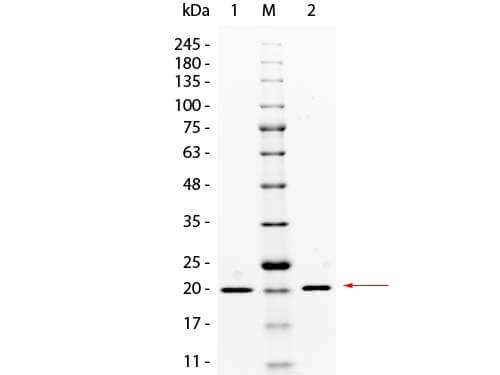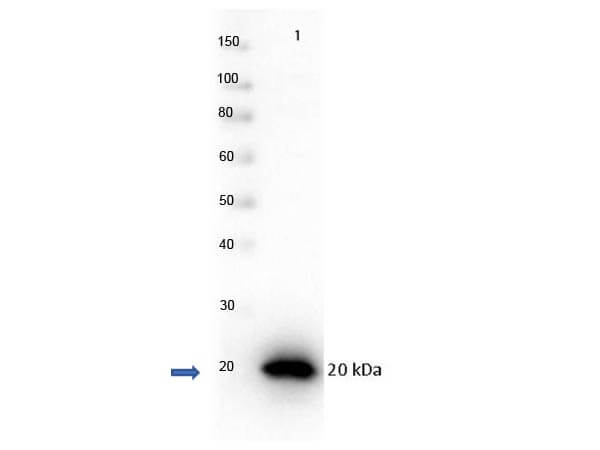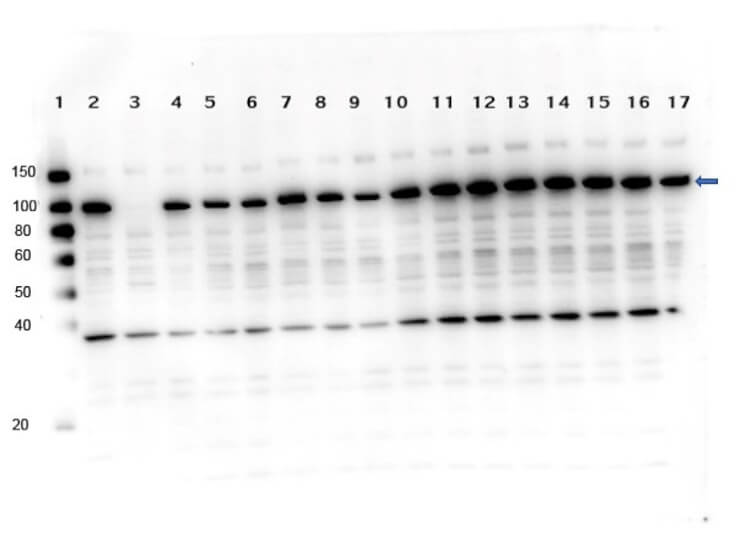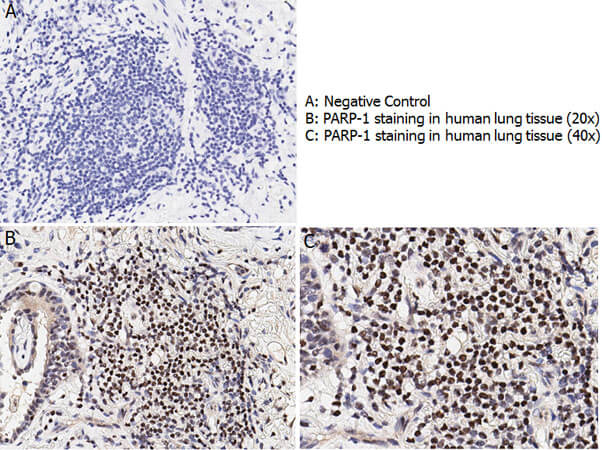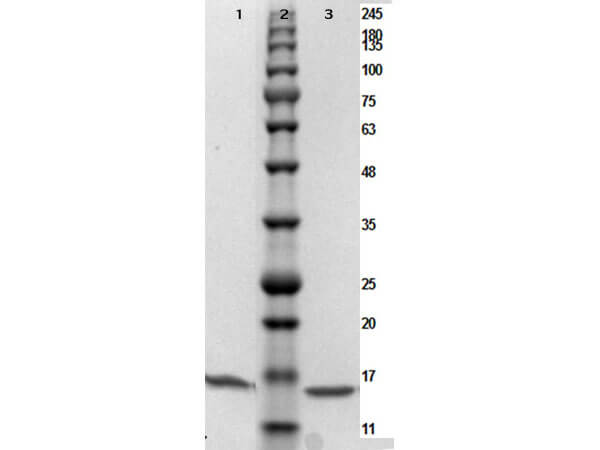Datasheet is currently unavailable. Try again or CONTACT US
PARP1 (internal) Control Protein
009-001-X51
25 µg
Liquid (sterile filtered)
WB, SDS-PAGE
Human
E. coli
This product is discontinued
Product Details
PARP1 (internal) Control Protein - 009-001-X51
Poly [ADP-ribose] polymerase 1, ADP-ribosyltransferase diphtheria toxin-like 1, ARTD1, NAD(+) ADP-ribosyltransferase 1, ADPRT 1, PPOL
Human
E. coli
Recombinant Protein
Target Details
PARP1 - View All PARP1 Products
PARP1 (internal) is a N-terminus His-Tag recombinant protein expressed in E.coli that includes the human PARP1 automodification domain and the Breast Cancer Suppressor Protein (BRCA1), carboxy-terminal domain . Analysis by SDS-PAGE and Coomassie staining resulted in ~19 kDa MW band and estimated purity ≥90%.
P09874 - UniProtKB
Application Details
SDS-PAGE, WB
PARP1 (internal) has been tested by SDS-PAGE and western blot and is suitable as a control for immunological assays that use Anti-PARP1 (internal) (RABBIT) Antibody - 200-401-X51. Specific conditions for reactivity should be optimized by the end user. Expect a band approximately 20 kDa in size corresponding to PARP-1 by western blotting in the appropriate cell lysate or extract.
Formulation
1.0 mg/ml by modified Lowry assay
0.02 M Potassium Phosphate, 0.15 M Sodium Chloride, pH 7.2
0.01% (w/v) Sodium Azide
10% (v/v) Glycerol
Shipping & Handling
Dry Ice
Store vial at -20° C prior to opening. Aliquot contents and freeze at -20° C or below for extended storage. Avoid cycles of freezing and thawing. Centrifuge product if not completely clear after standing at room temperature. This product is stable 2 - 3 weeks at 4°C as an undiluted liquid. Dilute only prior to immediate use.
Expiration date is one (1) year from date of receipt.
PARP1 is the primary member of the poly(ADP-ribose) polymerase family, whose function is to signal DNA damage (and to recruit repair proteins) by PARylation. PARP1 is also involved in multiple cell death pathways, including apoptosis, necroptosis, autophagy, and a relatively new pathway termed parthanatos. PARP1 can also promote tissue survival by shifting the balance of cell death programs between autophagy and necrosis. Clinical studies have shown vulnerability to PARP inhibitors in DNA repair defective cancers. PARP1-AD is useful for researchers interested in cellular processes including DNA damage, transcriptional control, and stem cell identity research.
This product is for research use only and is not intended for therapeutic or diagnostic applications. Please contact a technical service representative for more information. All products of animal origin manufactured by Rockland Immunochemicals are derived from starting materials of North American origin. Collection was performed in United States Department of Agriculture (USDA) inspected facilities and all materials have been inspected and certified to be free of disease and suitable for exportation. All properties listed are typical characteristics and are not specifications. All suggestions and data are offered in good faith but without guarantee as conditions and methods of use of our products are beyond our control. All claims must be made within 30 days following the date of delivery. The prospective user must determine the suitability of our materials before adopting them on a commercial scale. Suggested uses of our products are not recommendations to use our products in violation of any patent or as a license under any patent of Rockland Immunochemicals, Inc. If you require a commercial license to use this material and do not have one, then return this material, unopened to: Rockland Inc., P.O. BOX 5199, Limerick, Pennsylvania, USA.

